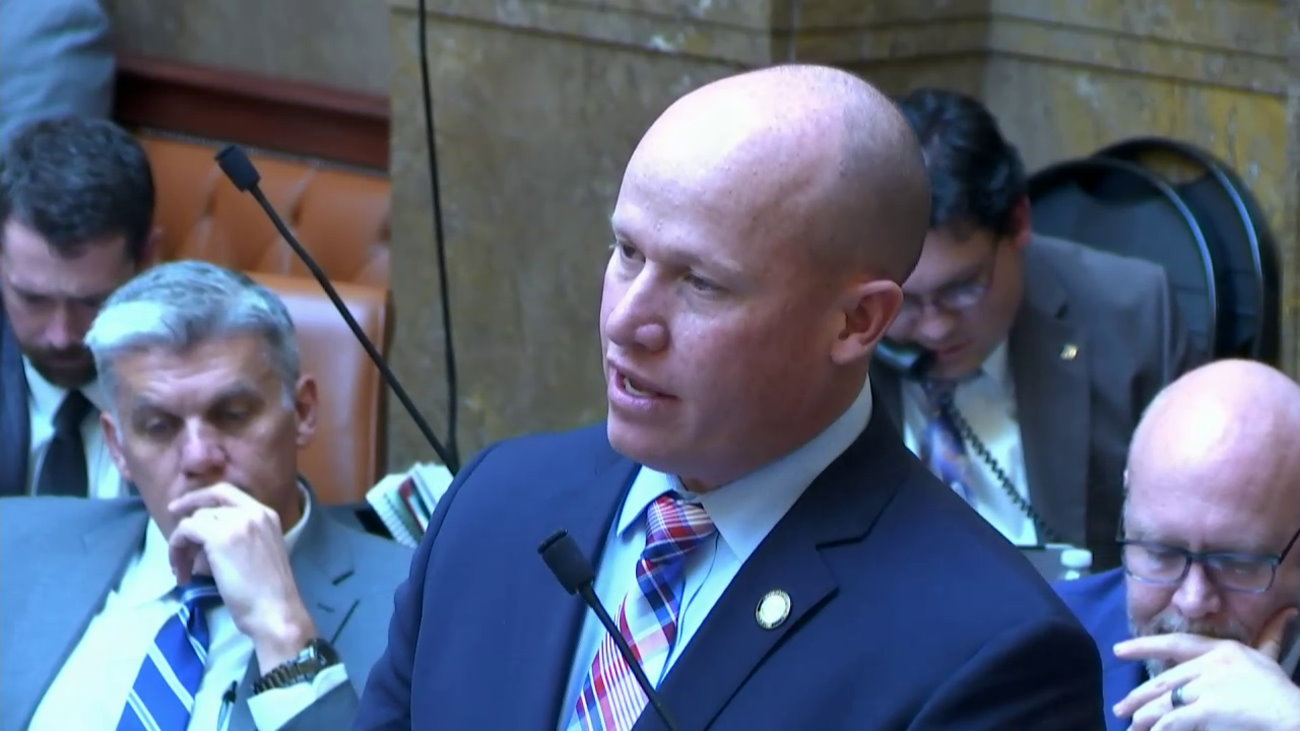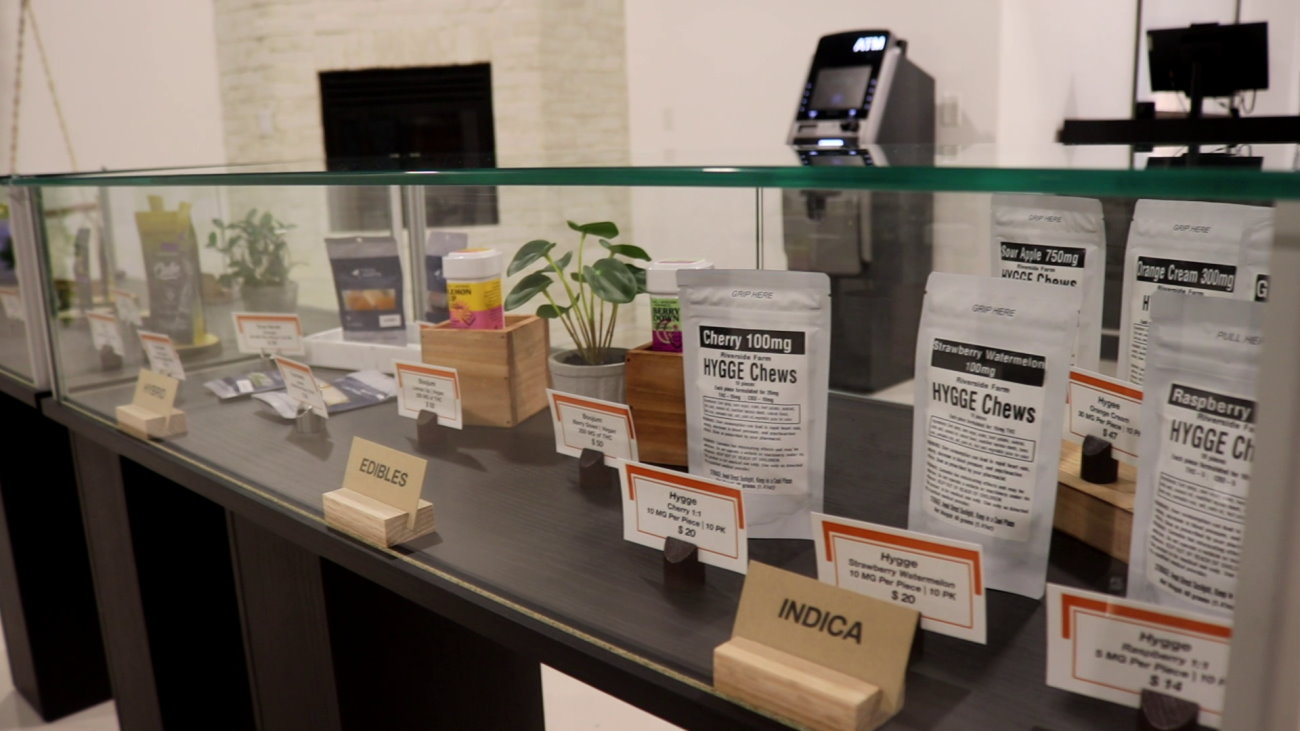
ST. GEORGE — While a bill aimed at protecting government employees from being discriminated against for having medical cannabis cards passed the Legislature last week, it spawned a larger question of just how the state should address medical cannabis use by first responders, a question that may arise again later in the legislative session.

The Medical Cannabis Patient Protection Amendments, designated SB 46 in the 2022 Utah Legislature, is sponsored by Sen. Daniel Thatcher of West Valley City and sponsored in the House by Rep. Joel Ferry of Brigham City.
SB 46, which passed 68-4 last week in the House and 26-1 in the Senate on Jan. 19, closes a loophole in the preexisting law – a part of the 2018’s retooled Proposition 2 – after the loophole was used by Ogden City to suspend some of the city’s firefighters. These firefighters had medical cannabis prescriptions and were placed on administrative leave and asked to hand over their prescription cards if they wanted to get back to work.
One of the firefighters, Levi Coleman, filed a lawsuit against the city in November that claims the suspension violated Utah’s Medical Cannabis Act. Under the law, government entities cannot discriminate against public employees for possessing a prescribed amount of medical cannabis or a medical cannabis card.
“What this bill does is it provides some clarity to what the legislative intent was … in recognizing medical cannabis as a legitimate use of cannabis for treating certain ailments such as chronic pain and other issues that exist,” Ferry said while discussing the bill on the House floor last week.
The bill reiterates and clarifies existing law and does not change the legislative intent of the Medical Cannabis Act, Ferry said, adding that medical cannabis patients and cardholders are to be treated the same as any other individual who has been prescribed a controlled substance for medical purposes.

“We create a fair playing field,” he said. “I think it’s a strong move to help reinstate the rights of these patients.”
However, opponents of SB 46, including the Ogden City attorney and a former Ogden City Police chief, say allowing first responders to use medical cannabis – or at least the ability to acquire it on demand through a card – posed a possible public safety risk due to first responders showing up to work high and impaired.
Ogden City Attorney Gary Williams argued during a Jan. 27 hearing of the House Government Operations Committee that Ferry’s bill was targeting the Ogden City Fire Department. He also said SB 46 did not address the “balance the risk” of having cannabis-impaired firefighters on duty.
“We were following the law,” Williams said.
During the same committee hearing, Randy Watt, a former Ogden City Police chief and representative of the Utah Chiefs of Police Association and Utah Law Enforcement Legislative Committee, said use of the cannabis prescription card was too broad and needed to be narrowed.
“Prescriptions for hazardous drugs narrow within a window of time,” Watt said. “This card opens too broad an avenue at this point and should be turned off.”

SB 46 sponsor Thatcher was present in the Jan. 27 House hearing and said the bill was made to address the loophole in the current law. Anything else was beyond the scope of the bill, he said.
Some lawmakers said they worried the medical cannabis card could be used as a “get out of jail free card” in order to avoid being penalized at work.
Ferry said that if a firefighter or police officer showed up to work stoned or drunk, they’d face disciplinary action. The same applies for someone showing up to work while impaired by cannabis or any other prescription medication like opioids.
“I think its important to clarify what the bill really does,” said Rep. Norm Thurston, of Provo, who is a member of the House Government Operations Committee. Thurston ultimately gave the bill a favorable recommendation in that committee and then went on to vote in favor of it in the full House.
“We already have in statute provisions for protecting employees that need to use medical cannabis,” he said. “We have provisions that deal with where medical cannabis interferes with their ability to do their job. That’s all in the law. All this (SB 46) says is that the simple act of seeking a card is not going to subject you to being fired from your job, which is what happened.”
SB 46 passed the House with all Southern Utah representatives voting in favor of the bill, with the exception of Rep. Lowry Snow, who was absent for the vote.

On the Senate side, all Southern Utah senators also voted in favor of the bill. However, due to the narrow scope of SB 46, Sen. Evan Vickers, the Cedar City pharmacy owner who co-sponsored the bill in the Senate, said during the Jan. 27 committee hearing that additional legislation addressing medical cannabis use among first responders may yet be in the works.
“This is really a big question,” Vickers said.
St. George Rep. Walt Brooks, who sits on the House Government Operations Committee and also gave the bill a favorable recommendation, told St. George News on Monday that he had heard similar statements to those expressed by Vickers and that such a bill could potentially show up in the latter part of the 2022 legislative session.
As for the arguments for and against SB 46 overall, Brooks said, “We judge people based on their behavior, not what we perceive their intent is. Just because you have a medical marijuana card, it doesn’t mean you intend to abuse it.”
SB 46 now goes to the governor’s desk for signing.
Check out all of St. George News’ coverage of the 2022 Utah Legislature here.
For a complete list of contacts for Southern Utah representatives and senators, click here.
Copyright St. George News, SaintGeorgeUtah.com LLC, 2022, all rights reserved.